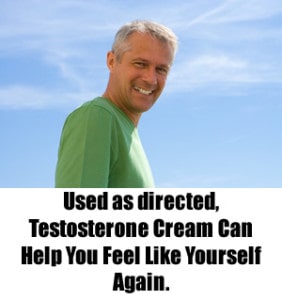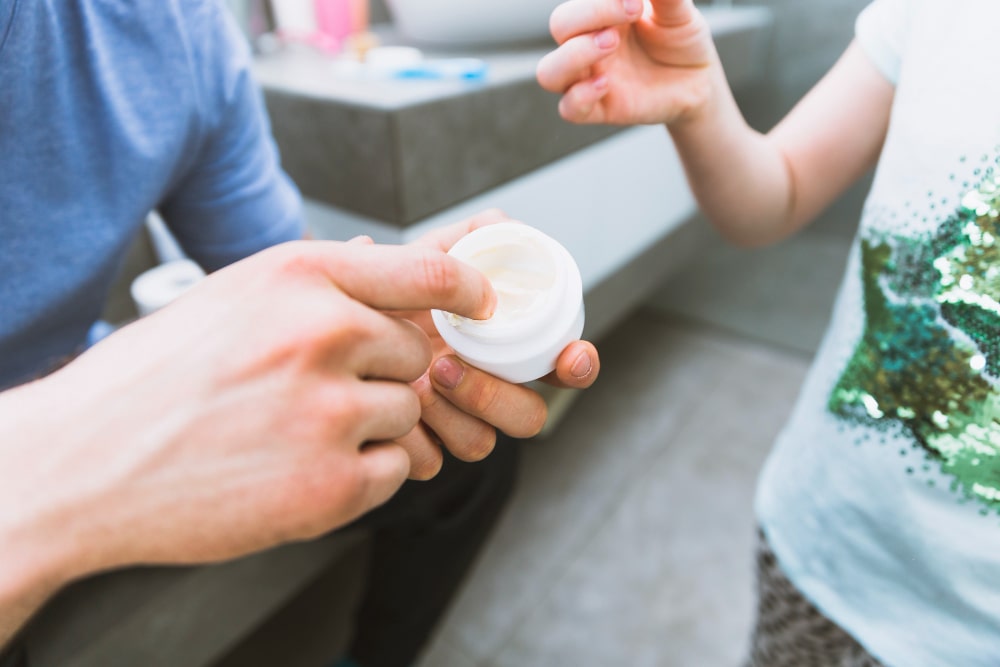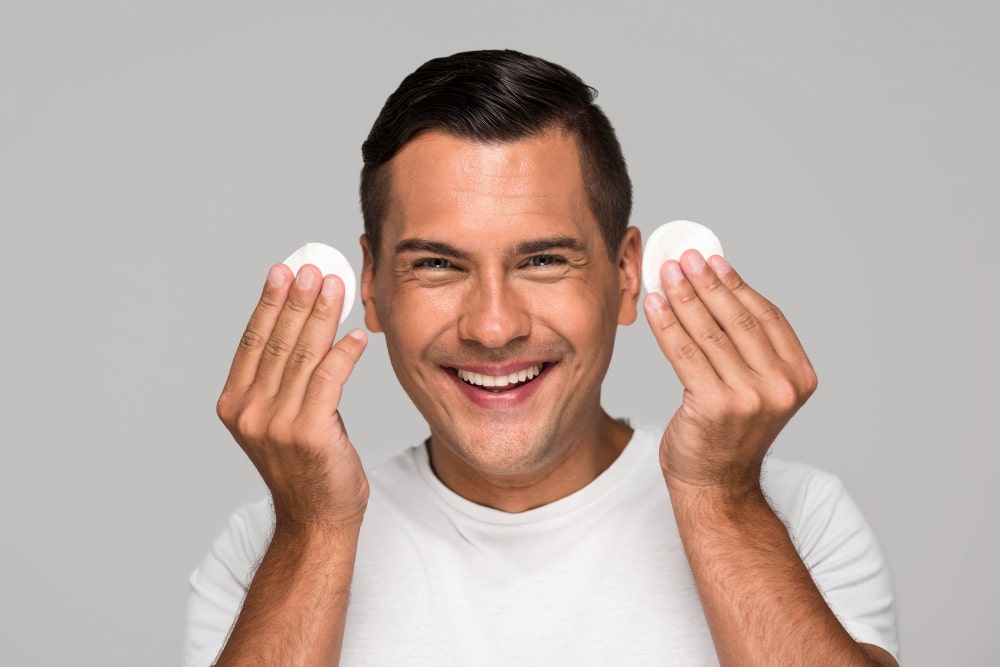Bio-Identical Testosterone Hormone for Men
Transdermal testosterone cream is a topical hormone cream. It works by replacing or supplementing the testosterone that is naturally made in the body. Testosterone is a naturally occurring male hormone necessary for many processes in the body.
Testosterone is used to treat conditions in men that result from a lack of natural testosterone, it may also be used for other purposes not listed in this medication guide. Your doctor will prescribe the appropriate daily dose with information gathered from a blood or saliva test. It is important to test for both free and total testosterone levels.

Important Information for Women and Children Regarding Testosterone Cream
This cream’s dose has been formulated for men only and should not be used by women. Testosterone can cause birth defects in an unborn baby and should not be used by pregnant women. A pregnant woman should avoid coming into contact with this cream, or with a man’s skin areas where this cream has been applied. If contact does occur, wash with soap and water right away.
Topical testosterone is absorbed through the skin and can cause side effects or symptoms of male features in a child or woman who comes into contact with the medication. Call your doctor if a person who has close contact with you develops enlarged genitals, premature pubic hair, increased libido, aggressive behavior, male-pattern baldness, excessive body hair growth, increased acne, irregular menstrual periods, or any signs of male characteristics.


Before using Transdermal Testosterone Cream
Do not use testosterone cream if you are allergic to testosterone patches or gels, or if you have prostate cancer or male breast cancer.
To make sure you can safely use testosterone cream, tell your doctor if you have any of these other conditions:
- Diabetes
- sleep apnea or chronic breathing problems
- liver disease or kidney disease
- overweight
FDA pregnancy category X. Testosterone cream should not be used by a woman. Testosterone can cause birth defects in an unborn baby. A pregnant woman should avoid coming into contact with testosterone cream, or with a man’s skin areas where the gel has been applied. If contact does occur, wash with soap and water right away. Older men who use testosterone creams may have an increased risk of prostate enlargement or cancer. If you are over 65, talk with your doctor about your specific risk. Do not use testosterone creams on a boy younger than 18 years old.
How should I use Testosterone Cream?
- Use testosterone cream exactly as it was prescribed by your doctor. Do not use in larger amounts, or use it for longer than recommended by your doctor. Follow the instructions on your prescription label.
- Apply the testosterone cream at the same time each day (preferably in the morning) to clean, dry, unbroken skin on the shoulders or upper arms, or on a hairless area on the upper thigh. Depress the pump completely as directed onto the application site and rub in well. Allow the cream to dry for at least 5 minutes before you dress. Wash your hands with soap and water after applying the cream.
- Do not apply Testosterone cream to your penis or your scrotum.
- It is best to cover treated skin areas with clothing while using testosterone cream. This will help prevent getting this medicine on other people. If someone else does come into contact with a treated skin area, they must wash the contact area right away with soap and water.
- To be sure this medicine is helping your condition, your blood will need to be tested often. Blood tests will also determine if your compounded dose needs to be adjusted. Your prostate or liver function may also need to be tested. Visit your doctor regularly.
- It is important to use Testosterone cream regularly to get the most benefit. Get your prescription refilled before you run out of medicine completely. Store this medication at room temperature away from moisture and heat.
What happens if I miss a dose?
Apply the cream as soon as you remember. If it is almost time to apply your next dose, skip the missed dose and apply the medicine at your next regularly scheduled time. Do not use extra cream to make up the missed dose.
What happens if I overdose?
Seek emergency medical attention or call the Poison Help line at 1-800-222-1222. An overdose of testosterone applied to the skin is not expected to produce life-threatening symptoms.
What should I avoid while using Testosterone Cream?
- Do not apply testosterone cream to your penis or your scrotum.
- Avoid swimming, bathing, or showering for at least 5 hours after applying testosterone cream.
Testosterone Cream side effects
Get emergency medical help if you have any of these signs of an allergic reaction: hives; difficulty breathing; swelling of your face, lips, tongue, or throat. Stop using Testosterone Cream and call your doctor at once if you have any of these serious side effects:
- problems with urination
- swelling of your ankles
- frequent, prolonged, or bothersome erections
- or nausea, stomach pain, low fever, loss of appetite, dark urine, clay-colored stools, jaundice (yellowing of the skin or eyes)
Topical testosterone is absorbed through the skin and can cause symptoms of male features in a woman or child who comes into contact with the medication. Call your doctor if your female partner has male-pattern baldness, excessive body hair growth, increased acne, irregular menstrual periods, or any other signs of male characteristics.
Less serious Testosterone Cream side effects may include:
- breast swelling or tenderness
- increased acne or hair growth
- headache, depressed mood
- or changes in your sex drive
What other drugs will affect Testosterone Cream?
Before using testosterone cream, tell your doctor if you are using any of the following drugs:
- insulin
- a blood thinner (warfarin, Coumadin, Jantoven)
- or a corticosteroid such as methylprednisolone (Medrol), prednisone (Sterapred), and others
This list is not complete and there may be other drugs that can interact with testosterone cream. Tell your doctor about all the prescription and over-the-counter medications you use. This includes vitamins, minerals, herbal products, and drugs prescribed by other doctors. Do not start using a new medication without telling your doctor.
If you have any questions and require a consultation, please call 201-869-5407 and ask to speak with a pharmacist.


